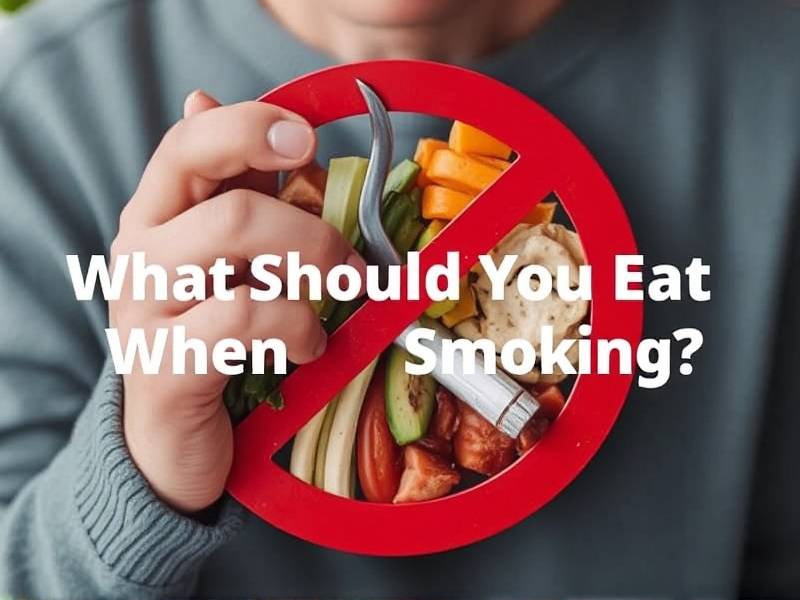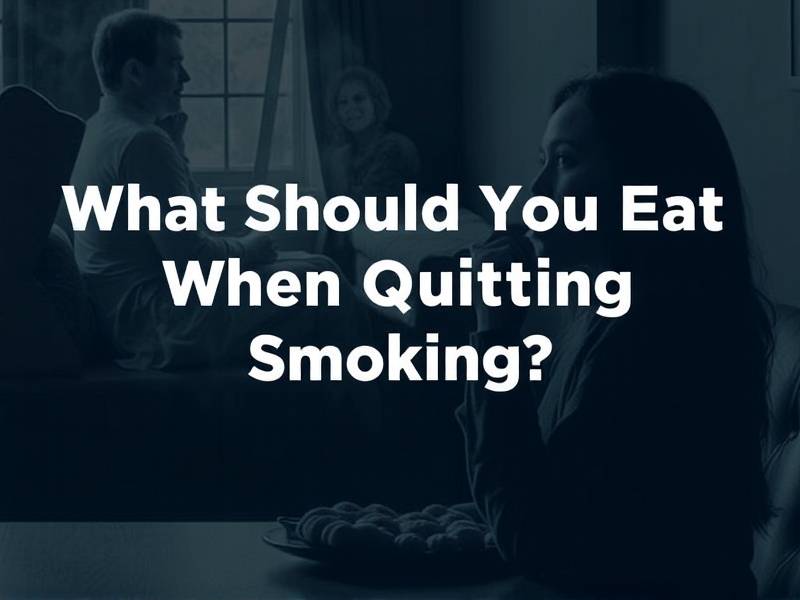What Should You Eat When Quitting Smoking?
Nourishing Your Journey to Quit Smoking: What to Eat
Introduction: Quitting smoking is a significant step towards a healthier life. While it's crucial to find strategies to deal with withdrawal symptoms, your diet plays a vital role in supporting your journey. This article explores what you should eat when quitting smoking, providing you with nutritional guidance that complements your efforts to kick the habit.
1. Fruits and Vegetables: Your Daily Dose of Vitamins
Incorporating a variety of fruits and vegetables into your diet is essential. These nutrient-rich foods are packed with vitamins, minerals, and antioxidants that can help combat the oxidative stress caused by smoking.

- Berries: They are high in antioxidants, which can help reduce inflammation and protect your cells.
- Leafy Greens: Spinach, kale, and other leafy greens are rich in vitamins A, C, E, and K.
- Carrots: They contain beta-carotene, which supports eye health.
2. Whole Grains: The Energy You Need
Whole grains provide sustained energy release and fiber, which can help keep you feeling full for longer. Foods like whole grain bread, brown rice, and oatmeal are excellent choices.
3. Lean Proteins: Building Strong Bodies
Protein helps repair tissues damaged by smoking and supports muscle growth. Lean proteins such as chicken breast, turkey, fish, eggs, and legumes are great options.
4. Healthy Fats: The Good Kind of Fat
Healthy fats found in foods like avocados, nuts (like almonds), seeds (like flaxseeds), and olive oil can help improve heart health and may reduce cravings.
5. Hydration: Water Is Your Best Friend
Staying hydrated is crucial when quitting smoking as it helps flush out toxins from your body. Aim for at least eight glasses of water per day.

Tips for Success:
- Plan Your Meals: Preparing meals ahead of time can help you avoid unhealthy snacks.
- Snack Wisely: Choose healthy snacks like nuts or fruit instead of sugary treats.
- Avoid Alcohol: Alcohol can increase cravings for nicotine.
- Be Patient: It takes time for your body to adjust to the changes in your diet after quitting smoking.
Conclusion: Embarking on a smoke-free lifestyle is not just about avoiding tobacco; it's about nurturing your body with the right foods. By incorporating these nutritious choices into your diet, you'll be supporting both your physical health and mental well-being during this transformative journey. Remember that every step counts – let's make those steps count towards a healthier future!
